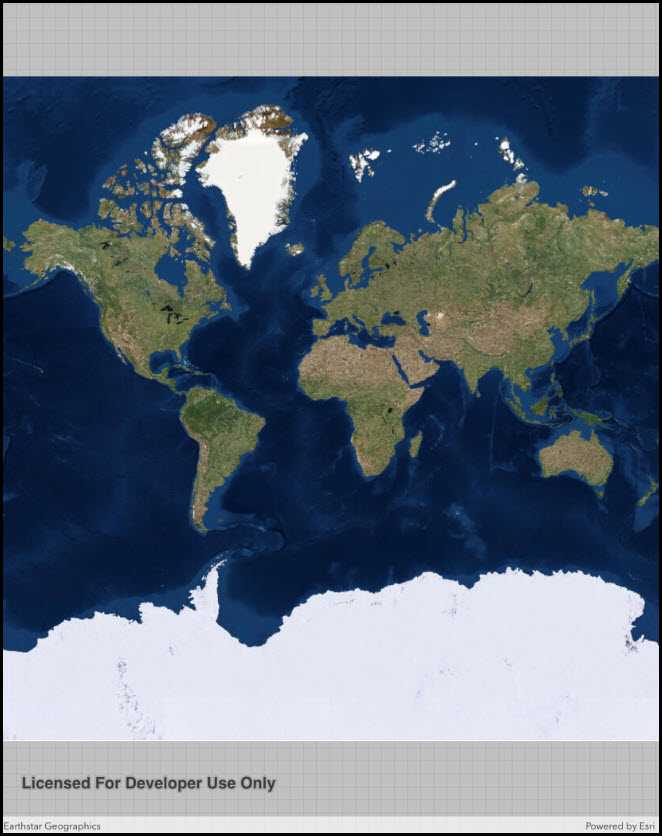Display a map with an imagery basemap.

Use case
The map is the fundamental building block of any GIS application and is used to specify how geographic data is organized and communicated to your users.
How to use the sample
Run the sample to view the map. Pan and zoom to navigate the map.
How it works
- Create an
Mapwith aBasemapStyle.ArcGISImageryStandardbasemap style. - Create a
MapViewobject to display the map. - Set the map to the map view.
Relevant API
- Basemap
- Map
- MapView
Tags
basemap, map
Sample Code
DisplayMap.cs
// Copyright 2016 Esri.
//
// Licensed under the Apache License, Version 2.0 (the "License"); you may not use this file except in compliance with the License.
// You may obtain a copy of the License at: http://www.apache.org/licenses/LICENSE-2.0
//
// Unless required by applicable law or agreed to in writing, software distributed under the License is distributed on an
// "AS IS" BASIS, WITHOUT WARRANTIES OR CONDITIONS OF ANY KIND, either express or implied. See the License for the specific
// language governing permissions and limitations under the License.
using Esri.ArcGISRuntime.Mapping;
using Esri.ArcGISRuntime.UI.Controls;
using Foundation;
using UIKit;
namespace ArcGISRuntime.Samples.DisplayMap
{
[Register("DisplayMap")]
[ArcGISRuntime.Samples.Shared.Attributes.Sample(
name: "Display map",
category: "Map",
description: "Display a map with an imagery basemap.",
instructions: "Run the sample to view the map. Pan and zoom to navigate the map.",
tags: new[] { "basemap", "map" })]
public class DisplayMap : UIViewController
{
// Hold references to UI controls.
private MapView _myMapView;
public DisplayMap()
{
Title = "Display a map";
}
private void Initialize()
{
// Show an imagery basemap
_myMapView.Map = new Map(BasemapStyle.ArcGISImageryStandard);
}
public override void ViewDidLoad()
{
base.ViewDidLoad();
Initialize();
}
public override void LoadView()
{
// Create the views.
View = new UIView() { BackgroundColor = ApplicationTheme.BackgroundColor };
_myMapView = new MapView();
_myMapView.TranslatesAutoresizingMaskIntoConstraints = false;
// Add the views.
View.AddSubviews(_myMapView);
// Lay out the views.
NSLayoutConstraint.ActivateConstraints(new[]
{
_myMapView.TopAnchor.ConstraintEqualTo(View.SafeAreaLayoutGuide.TopAnchor),
_myMapView.BottomAnchor.ConstraintEqualTo(View.BottomAnchor),
_myMapView.LeadingAnchor.ConstraintEqualTo(View.LeadingAnchor),
_myMapView.TrailingAnchor.ConstraintEqualTo(View.TrailingAnchor)
});
}
}
}